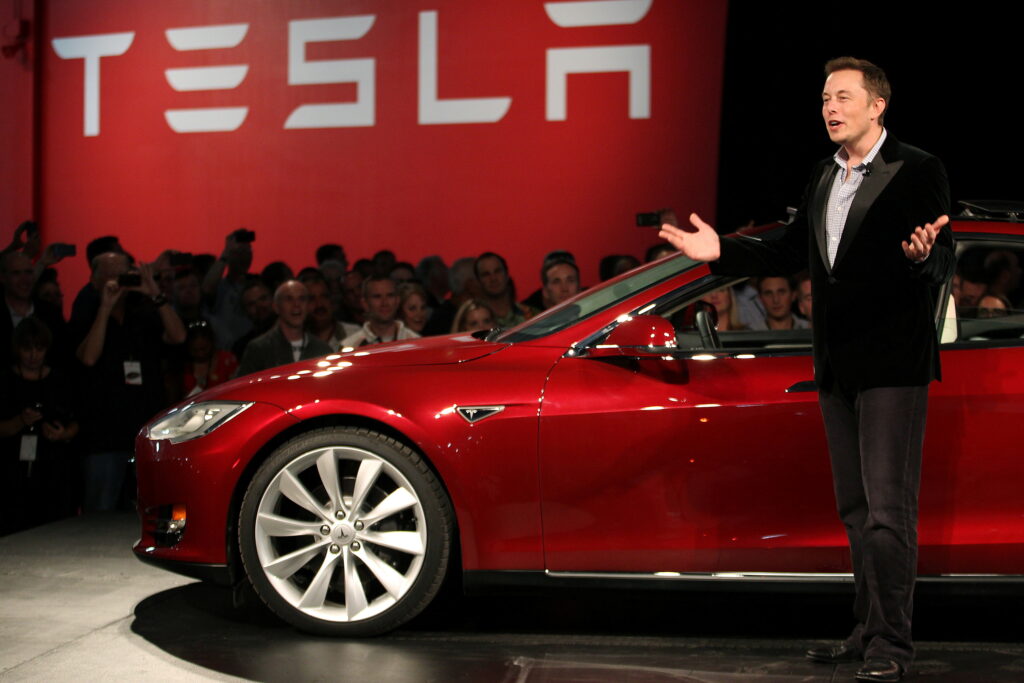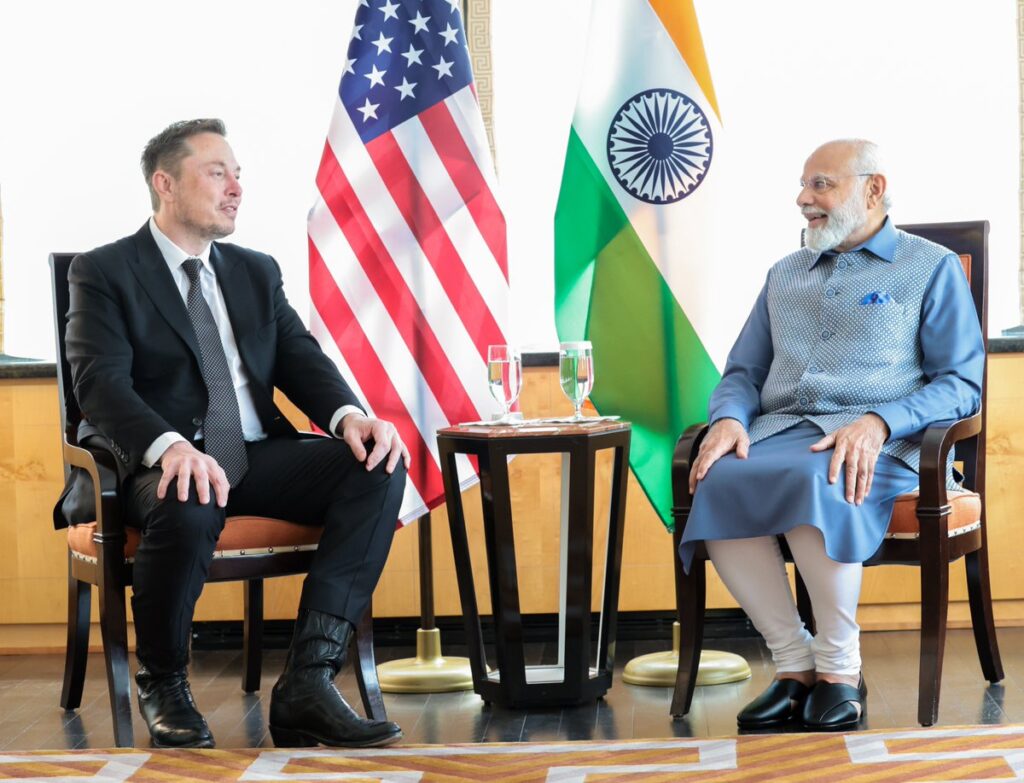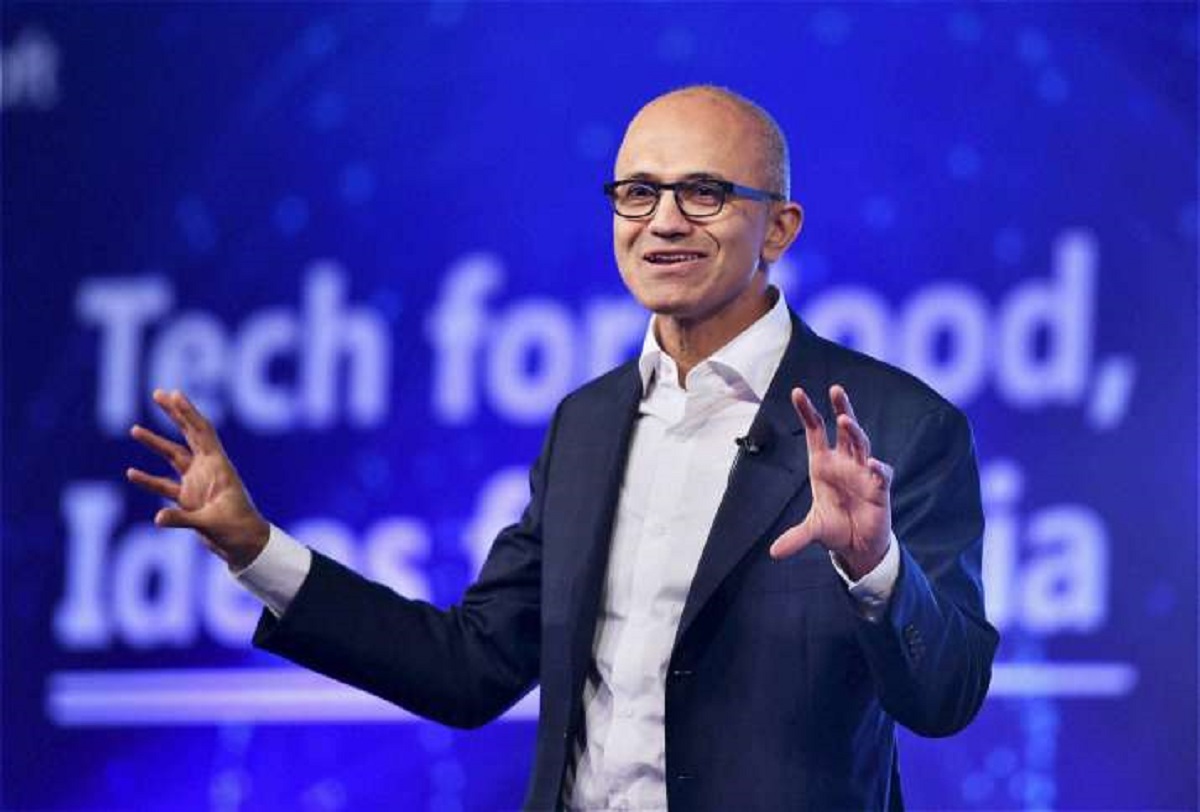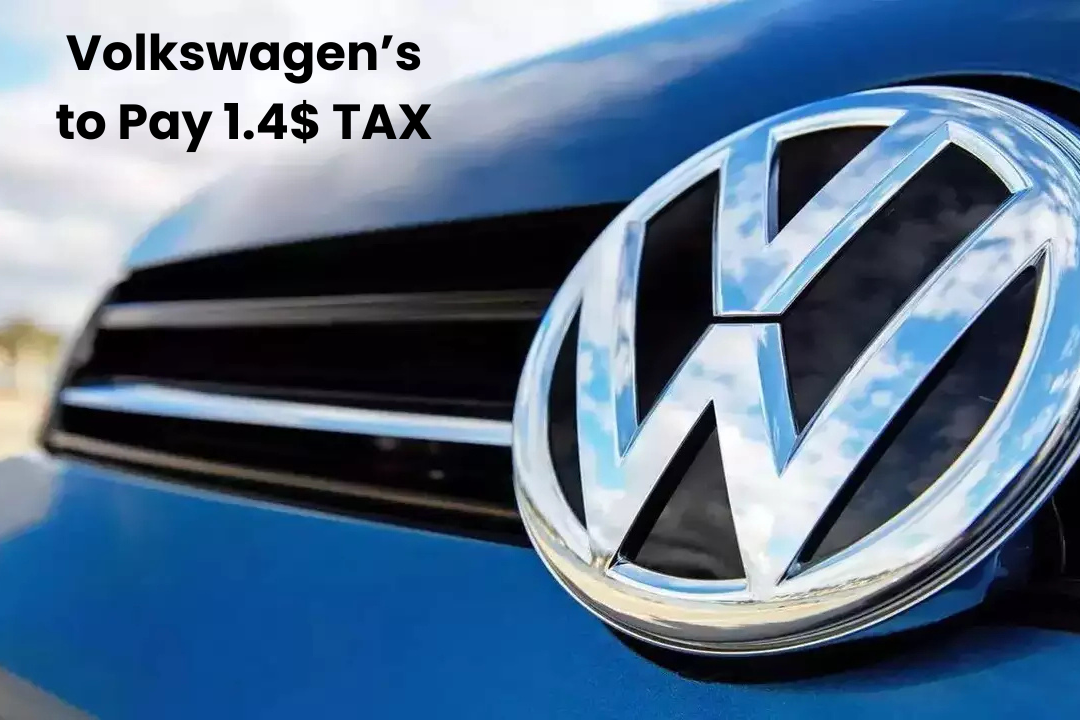Tesla, owned by Elon Musk, is preparing for its eagerly anticipated arrival in India.
In the upcoming months, Elon Musk plans to bring a few thousand Tesla vehicles to a port close to Mumbai, marking Tesla launch in India. With this action, the American electric vehicle (EV) enters the most populated nation in the world.

Around the third quarter of this year, Tesla will launch and and start selling these vehicles in three major indian cities: Bangalore, Delhi, and Mumbai, according to Bloomberg, which cited people familiar with the situation.
However, the ongoing tariff talks between the United States and India may have an impact on Tesla’s intentions for India. The massive EV manufacturer is anticipating a possible decrease in import taxes, which are presently at a high 110%.
The Indian government is expected to loosen restrictions on EV imports as part of a larger trade agreement with the United States. According to reports, Tesla has resurrected its plans for India by posting new job openings for showrooms and delivery operations following Elon Musk’s recent meeting with Indian Prime Minister Narendra Modi in Washington. Other options, such as lowering import taxes and allowing a certain number of vehicles at lower tariffs, are also being considered. Tesla has not yet responded to requests for comment, as have representatives from the Indian Prime Minister’s Office and the Ministry of Commerce and Industry.

A higher import limit and more advantageous tariffs might change Tesla’s long-term approach in one of the biggest auto markets in the world. The business could benefit from this growth, particularly after last year seeing the first drop in worldwide car deliveries in more than ten years. India’s rapidly expanding upper-middle class may find Tesla’s entry appealing. But it also puts local automakers at risk, as their manufacturing facilities employ thousands of people.
At the moment, cars costing more than $40,000 in India are subject to an effective tax of 110%. Tesla has frequently encouraged the Indian government to reduce these levies and eliminate extra duties in prior conversations.
According to insiders, Tesla’s operations in India would initially depend on imports, even though automakers that invest in domestic production benefit from much reduced tariffs. There are no indications that the corporation intends to start manufacturing locally anytime soon, despite earlier talks of establishing a final assembly facility in India.
According to reports, Tesla plans to build a booking service as one of its initial moves into the Indian market. From an office in Pune, Maharashtra, Prashant Menon, a longstanding executive at Tesla, is in charge of the company’s local activities.Tesla, owned by Elon Musk, is preparing for its eagerly anticipated arrival in India.
As part of a larger trade deal with the United States, the Indian government is anticipated to relax limits on EV imports. According to sources, a concessional tariff policy may raise the cap on imported EVs from 8,000 to 50,000 automobiles. Other alternatives are also being explored, such as lowering import duties and permitting a specific quantity of automobiles at reduced prices.
Requests for comment have not yet received a response from Tesla, the Ministry of Commerce and Industry, or the Indian Prime Minister’s Office.
A higher import limit and more advantageous tariffs might change Tesla’s long-term approach in one of the biggest auto markets in the world. The business could benefit from this growth, particularly after last year seeing the first drop in worldwide car deliveries in more than ten years. BYD’s hegemony in China and a dip in sales throughout Europe were the main causes of this downturn.
India’s rapidly expanding upper-middle class may find Tesla’s entry appealing. But it also puts local automakers at risk, as their manufacturing facilities employ thousands of people.
At the moment, cars costing more than $40,000 in India are subject to an effective tax of 110%. Tesla has frequently encouraged the Indian government to reduce these levies and eliminate extra duties in prior conversations.
Read other newsblog here





